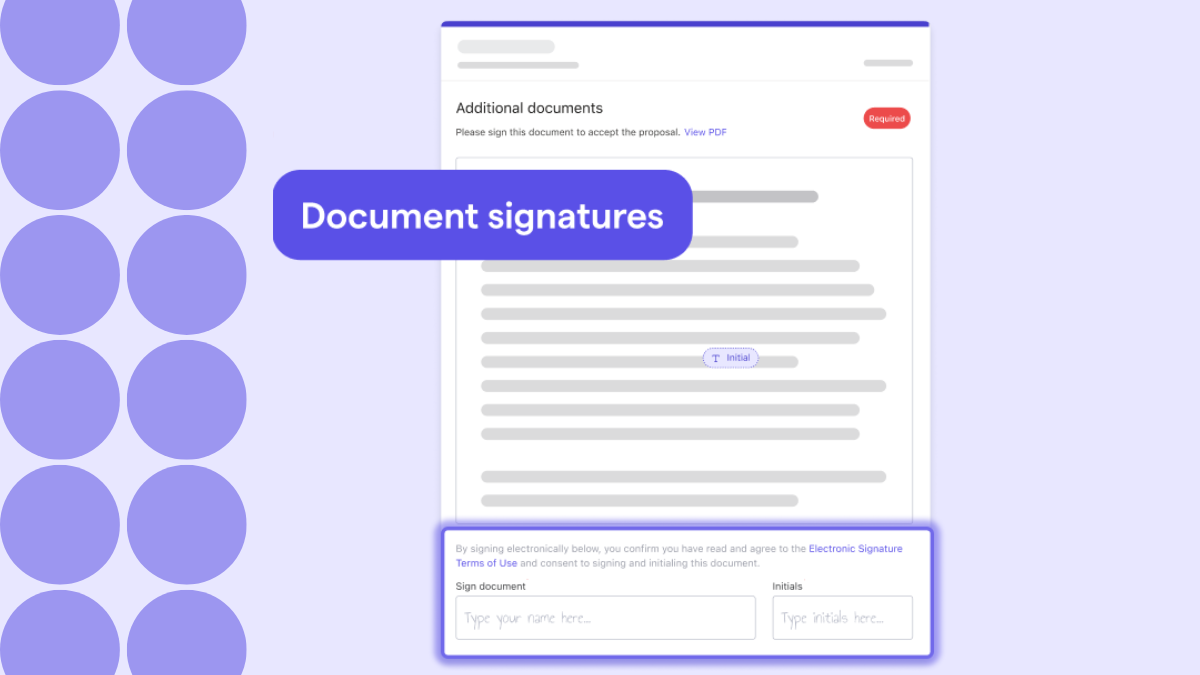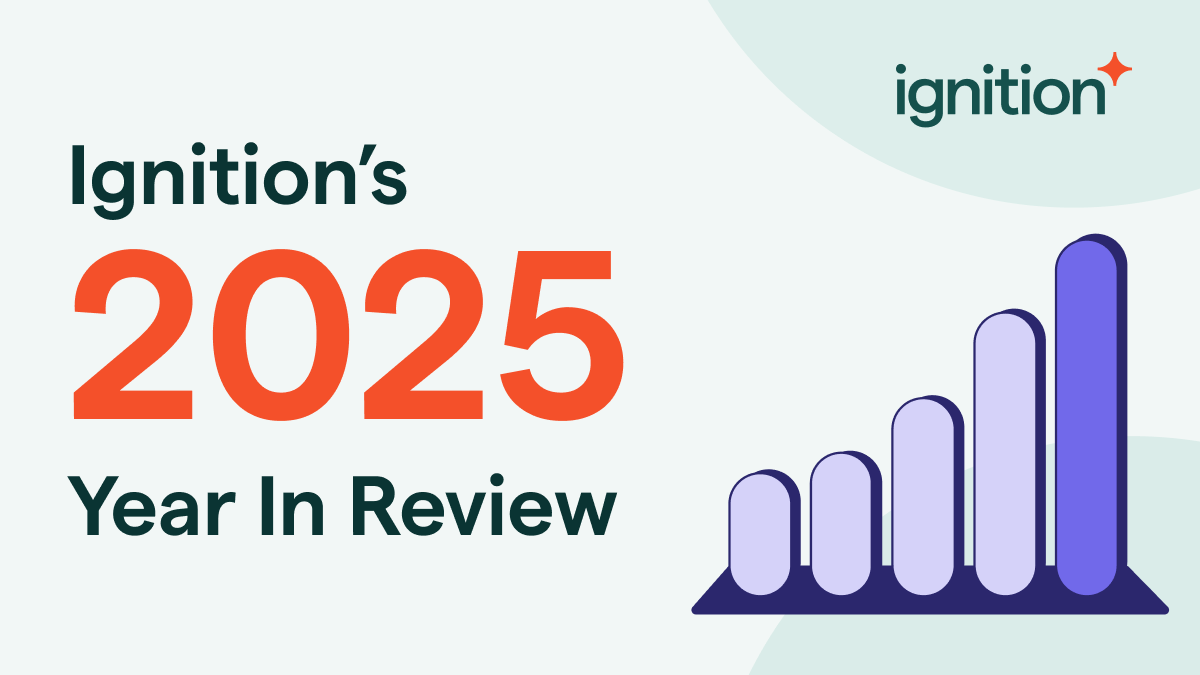What to consider when picking a contract management system

If your contract process still relies on manual tools or disconnected platforms, it might be time for a change. A modern contract management system is built to streamline contract creation, storage, and tracking, freeing your team from tedious admin work.
But if your business handles multiple clients, services, and billing structures, a tool that stops at contract automation won’t meet all your business needs.
You need a system that supports the full client lifecycle, from proposal creation to payment collection and renewals. Otherwise, you’re still stuck with manual follow-ups, scope creep, delayed payments, and patchwork processes that put revenue at risk.
Key takeaways
- Contracts are just one part of the client lifecycle.
- A contract-only contract lifecycle management (CLM) tool may still leave your team buried in admin work and vulnerable to scope creep.
- The best contract management tools go beyond templates and centralized repositories—they automate the entire proposal-to-renewal flow.
- If your team already uses tools like accounting and customer relationship management (CRM) platforms, strong integrations are a must.
- Prioritize a system that’s easy to adopt, streamlines your workflows, scales with your business, and improves the experience for both your team and your clients.
What is contract management software?
A contract management system is a tool that helps with creating, organizing, storing, and managing contracts throughout their lifecycle. It can reduce your team’s manual load, help meet compliance requirements, and make it easier to meet deadlines by offering key features like:
- Contract repositories: Eliminate the need to dig through filing cabinets, emails, or multiple systems to find contracts.
- Reminders: Send notifications for key contract dates, such as expirations, to help prevent missed deadlines.
- Contract templates: Give your team a head start in contract creation and help maintain consistent language across documents.
- E-signature capabilities: Let clients sign contracts remotely, minimizing delays and keeping deals moving.
- Audit trails: Log contract activities to promote accountability and maintain compliance records.
Modern platforms go beyond these key features, supporting both contract management and proposal and payment management. This reduces friction throughout the entire client lifecycle.
Why the right system should cover more than just contracts
If you’re used to manual or legacy systems, a standalone contract tool might sound like a step up. But in reality, it’s only a partial solution.
Contracts are an essential part of client lifecycle management, but they’re just one step in a much bigger process. To truly streamline your workflows, you need more than basic contract management. You need a solution that also supports proposal management, approval workflows, payment collection, and renewals without adding tools or complexity.
Choosing contract creation and management software that doesn’t connect these workflows can expose your business to issues like:
- Revenue loss: Tools that only support you through the signing stage require manual handling of renewals and scope changes. This increases the risk of errors, missed deadlines, and revenue leaks.
- Late payments: Many CLM tools lack payment automation. Manual follow-ups can be time-consuming and error-prone, resulting in delays.
- Higher admin burden: Without automation for the full client journey, your team may rely on extra tools or manual effort for tasks like proposal drafting and invoicing, pulling focus from higher-value work.
- Pricing and scope inconsistencies: When proposals, contracts, and final deliverables aren’t connected, terms can be unclear to stakeholders, leading to scope creep and pricing confusion.
- Inefficiencies in renewals: Relying on calendar reminders or spreadsheets can result in missed opportunities or rushed renegotiations.
Ignition helps avoid these pitfalls by connecting contract management with the full client lifecycle. It brings proposals, contracts, payments, and renewals into one system. You can collect payment details during the proposal stage, predefine services, pricing, and billing terms with a Service Library, and automate both renewals and price increases.
The result is lower admin overhead and stronger cash flow, which are two of the most important safeguards against common causes of business closure in the service industry.
Simplify how you send and manage engagement letters.
Use Ignition to automate, track, and standardize your client agreements.
12 must-have features in a contract management system
Your contract management system can shape the experience for both your team and your clients. A feature-rich platform reduces tool switching and manual follow-ups, freeing your team to focus on delivering great service. It also helps prevent miscommunications, pricing surprises, and rushed renewals, ultimately creating a smoother client journey overall.
1. Proposal-to-renewal automation
Proposal-to-renewal automation connects every step of the client lifecycle. It streamlines your contract workflow by letting your team create and send proposals, convert them into contracts, collect electronic signatures, trigger automated billing and payment collection, and manage renewals all from a single platform.
This reduces manual follow-ups, shortens deal cycles, and improves the experience for both employees and clients.
2. E-signature capabilities
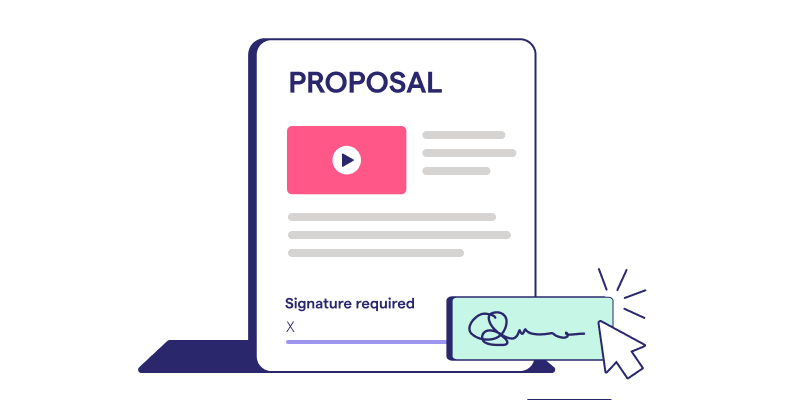
From proposal reviews to contract negotiations, many business interactions happen remotely—especially when teams and clients are in different locations. That’s why e-signature capabilities are essential in contract management systems.
They allow you to finalize agreements instantly from anywhere, streamlining the approval process. This also helps cut costs by eliminating the need for printing and courier services.
3. Payment integration at the contract stage
While this might not be top of mind when evaluating contract management software, it should be a priority. With payment integration, you can collect clients’ payment details at the start of the relationship and automate the collection process.
This helps you avoid awkward payment conversations after work begins and simplifies invoicing and billing. It’s also critical for protecting your business’s cash flow.
4. Custom templates for repeat services
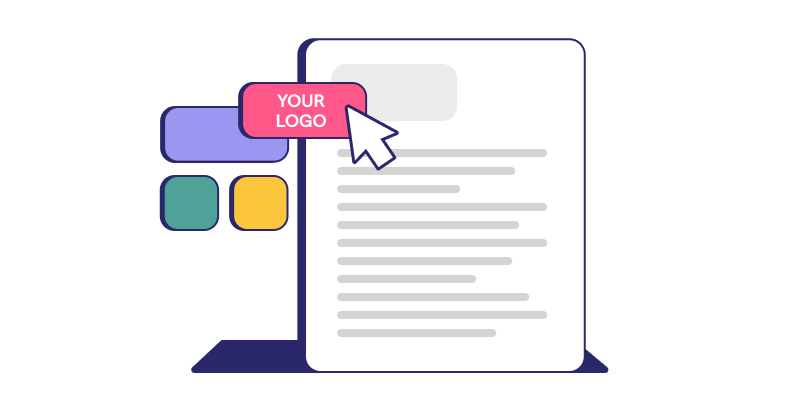
Creating the same contracts from scratch isn’t the best use of your team’s time. That’s why it’s important to choose a contract management system with customizable templates.
Pre-built contract (and proposal) templates simplify document creation and save time. All your team needs to do is adjust a few details for each new contract. This frees up time for higher-value tasks, such as client agreement contract negotiations, and promotes consistency in how your business presents itself.
5. Renewal reminders
Calendar-based reminders aren’t always reliable for tracking contracts. They rely heavily on manual input and are susceptible to errors that slow down your renewal process.
A better option is a contract management platform with automated notifications for upcoming expirations. These alerts help your team plan ahead, giving you time to adjust prices and update contracts as needed.
Automated reminders for clients are equally helpful. They reduce surprises, support informed budgeting, and help protect your revenue.
6. Scope creep prevention tools
Scope creep is one of the biggest threats to service providers. It often leads to budget overruns, reduced profit margins, and missed deadlines.
Look for a system that includes customizable templates to help clearly define your scope of work from the start, allowing you to instantly charge for additional tasks and keep your projects on track.
7. CRM or deal tracking functionality
Built-in or integrated CRM tools let you track leads, client journeys, and deal progress in one place. This eliminates the need to juggle multiple systems.
They also give your team better visibility into client behavior and deal stages, making it easier to follow up at the right time. For instance, if someone viewed your proposal or contract but didn’t respond, you can send a timely, personalized email to keep the conversation moving.
8. Audit trails and version control
Audit trails log every contract activity (like views, edits, and signatures) while version control lets you access, compare, and store previous document versions.
Together, they offer real-time visibility into contract changes, which can be critical when resolving disputes. They also promote accountability and support compliance, especially in highly regulated industries like legal and financial services.
9. Ease of use and fast onboarding
If your contract management system is too complex, your team may revert to manual workarounds or outdated tools.
Look for a user-friendly platform with intuitive navigation and clear workflows. During the demo stage, assess how easily your team can get started. Fast onboarding and ease of use are essential for long-term adoption.
10. Robust integrations
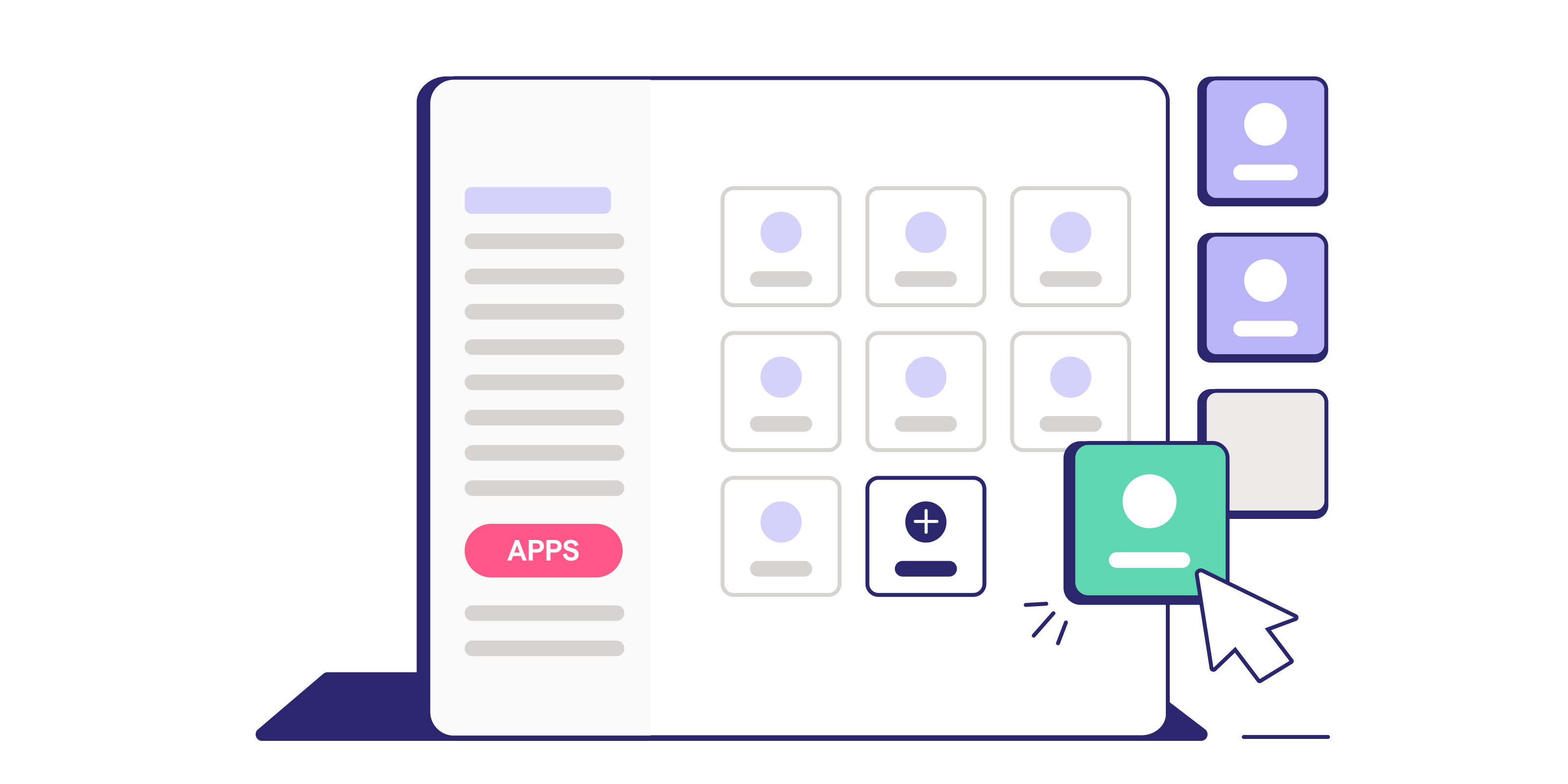
With the average desk worker using 11 applications to get work done, strong integration capabilities are a must in any contract management platform. Connections to tools like accounting software, CRM systems, and payment processors streamline data flow and reduce manual work.
Robust integrations reduce tool switching and limit repetitive data entry, helping your team work more efficiently and avoid costly mistakes.
11. Bulk renewals and price adjustments
The ability to renew multiple contracts at once and adjust pricing for new terms or services is essential, especially for agencies with a large roster of recurring clients. It saves time and minimizes the risk of manual errors.
With Ignition, for instance, you can roll forward hundreds of contracts and auto-increase fees with just a few clicks. What used to take hours or days can now be done in minutes.
12. Service library catalogue
A service library catalog is a valuable feature in modern client lifecycle management solutions, allowing you to centralize service and pricing information. With a shared library, team members can pull consistent contract terms when building agreements, minimizing errors caused by miscommunication around services or pricing.
Take Ignition, for example. You can add pre-scoped services, complete with billing cadence and default pricing to your library. Team members can then drag and drop contract data into agreements and quickly update rates as needed.
Key considerations when comparing contract management solutions
Features matter, but they’re only part of the equation. When evaluating contract management platforms, also consider time-to-value, client experience, and scalability.
Time-to-value

Before choosing a contract management platform, consider how quickly it will deliver a return on investment (ROI). The right solution should help you reduce admin work, streamline renewals within days, and show financial impact within a few months.
To gauge this, look at each platform’s user experience and features. Fast-return solutions often have intuitive interfaces, quick onboarding, responsive customer support, and seamless integrations.
With Ignition, you start seeing value from your first client. The platform:
- Allows you to send live proposals within your first week
- Instantly captures card/ACH details and schedules payments when proposals are sent, reducing manual follow-ups.
- Enables a full rollout, including proposal and engagement letter templates, accounting integrations, and team training within weeks, not months.
- Supports over 8,000 customers, automating roughly 91% of invoice collections and helping increase revenue by approximately 24%.
Reliable contract systems tend to deliver ROI quickly. A Forrester study found that one leading CLM software delivered a 449% return, with payback in as little as eight months. Since Ignition is faster to deploy and offers broader support across the client lifecycle, your payback could be even faster and greater.
Client experience
Don’t focus solely on the value a contract management solution offers your team; make sure it provides a smooth, friction-free experience for clients as well.
The right system should let clients view and sign contracts from a single location, easily approve or initiate payments, and receive timely alerts for renewals or invoices.
Scalability for growing client bases
Make sure your solution can support you as your volume of contracts increases, your team grows, and your service offerings expand so you don’t have to keep switching tools.
Scalable platforms typically have features like bulk renewals, extensive user permissions, automated payments, and robust integration capabilities.
Contracts matter, but they aren’t the only priority
Contracts are a valuable part of client lifecycle management. They clarify responsibilities and offer legal protection, but they’re just one piece of the puzzle.
When choosing a platform, look beyond basic contract management automation. Opt for a solution that supports the entire client lifecycle, like Ignition.
Ignition enhances the contract management process and broader client management by:
- Offering professionally vetted, industry-compliant proposals and engagement letters.
- Speeding up sales cycles with automated pipeline management.
- Streamlining accounts receivable management by integrating payment collection into client agreements.
- Offering integrations with tools like QuickBooks Online, Xero, and Zapier.
- Providing proposal acceptance and revenue generation insights.
Streamline client lifecycle management with Ignition
Contract-specific features are important, but they shouldn’t be your only focus when choosing a CLM. Think about your needs across the full client lifecycle, from proposal to renewal. The right contract management software shouldn’t just support contract drafting; it should also help you get paid faster and retain more clients.
Ignition connects contract management with the entire client lifecycle, combining industry-vetted templates, e-signature capabilities, proposal-building tools, automated payment collection, and bulk renewals into one powerful platform. This all-in-one approach helps you capture new business faster, protect your cash flow, and build longer-lasting client relationships.
Want support that goes beyond basic contract automation?
Try Ignition and streamline everything from proposal to contract renewal management.
